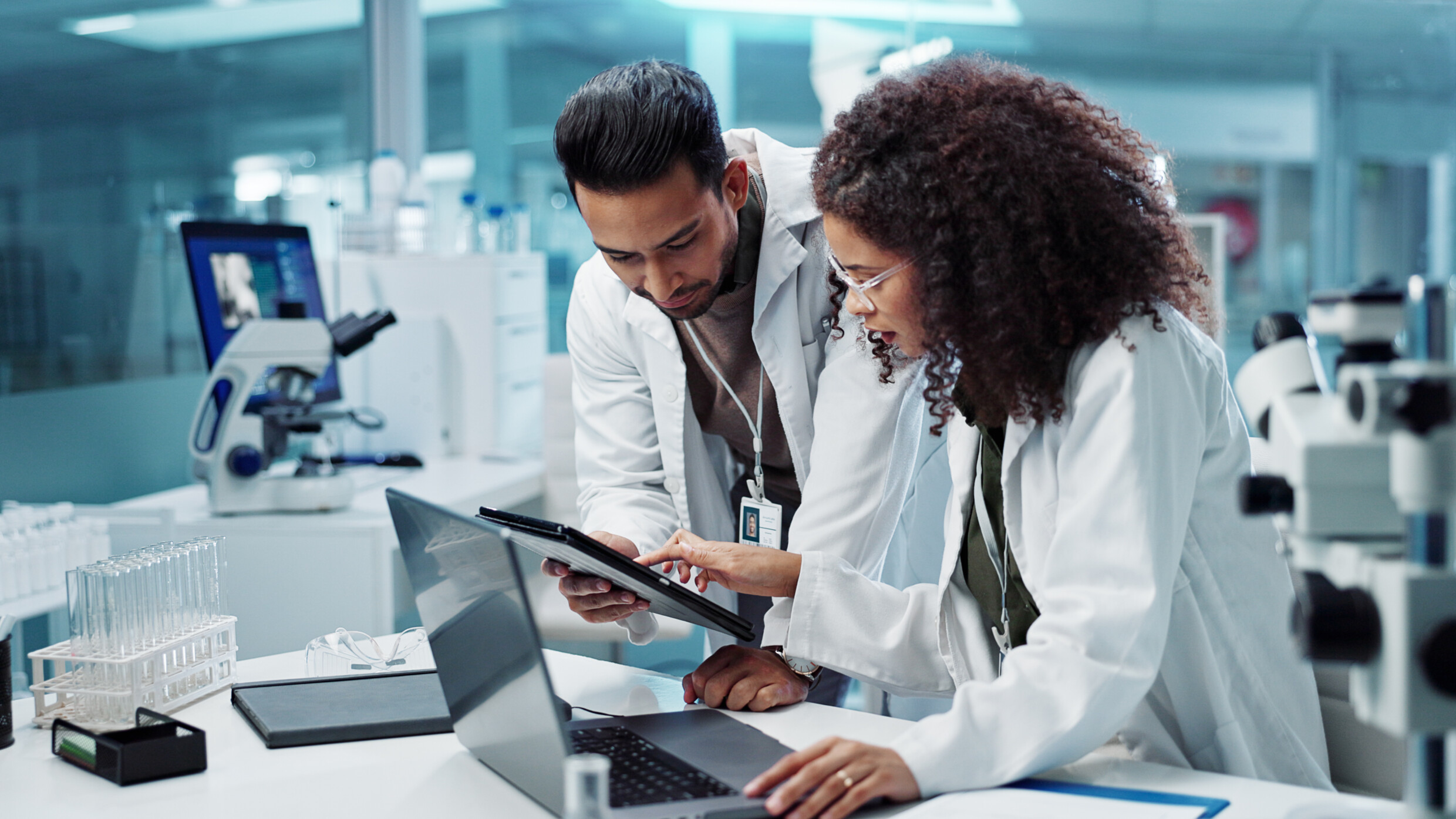Read next
AI in medicine
Using AI for facial fracture detection
Consultation projects play a crucial role in fulfilling the Fraunhofer mission of translating cutting-edge research into industry applications. Recently, Fraunhofer IKS cooperated with the South Korean company ZIOVISION on AI-based facial fracture segmentation from medical images. The successful outcome of the project demonstrates the potential benefits such collaborations offer to both partners.



© iStock/Jacob Wackerhausen
The Trustworthy Digital Health department at Fraunhofer Institute for Cognitive Systems IKS aims to develop reliable software solutions for medical applications, focusing on AI for prediction and decision support. To ensure the safety of their systems, the Fraunhofer IKS researchers place a significant emphasis on creating explainable and interpretable-by-design AI.
The teams’ broad activities include rapid prototyping, engaging in publicly funded research and contract-based research and development. Acting as an interface between the industry and the research, Fraunhofer’s primary goal is to leverage the expertise of its employees to translate the latest research findings into practical applications. One of the most straightforward ways to achieve this is through collaboration between Fraunhofer IKS and private companies in the form of expert consultation.
Expected flow of consultation collaboration
with Fraunhofer IKS
Any project conducted at Fraunhofer IKS begins with a kick-off meeting. This meeting is a crucial starting point for any successful consultation. Its main purpose is to ensure that the project goals and timeline are well-defined and agreed upon by the healthcare team and all participating stakeholders. Furthermore, it provides an excellent opportunity for an initial scientific discussion, including a detailed introduction to the technical aspects of the topic and a presentation of the tools that will be used.
After the kick-off meeting, the form of cooperation heavily depends on the level of support necessary for the successful completion of the project and the needs of the customer. This may range from regular weekly meetings and occasional in-person events to largely independent work with less frequent contact to ensure the project stays on track.
The purpose of a consultation is to leverage the expertise of the Fraunhofer researchers. The Trustworthy Digital Health team comprises members with both technical and medical backgrounds along with extensive experience in developing AI applications for healthcare. The projects involve topics such as generative AI, medical image analysis and the explainability and interpretability of AI models. As a research institute, Fraunhofer IKS is uniquely positioned to tackle projects related to novel or under-researched applications and conducting in-depth literature research and analysis to provide benchmarking and evaluation, even in the absence of directly comparable solutions.
The outcomes of a consultation project heavily depend on the wishes and needs of the customer, as well as the project’s duration. Depending on the necessary workload, the timespan of the project may range from a few months to several years. Results can be delivered continuously throughout the project duration or provided all at once at the end.
A potential outcome could be the development of a new solution to the presented problem, which includes researching the current state-of-the-art, designing and training of an AI model, and performing unit tests. For smaller projects, however, a comprehensive review of an existing solution, along with thorough literature research and analysis of the provided data and model, might be a more applicable result.
Recent Cooperation with South Korean
Company ZIOVISION
An example of a successful consultation project is the recent cooperation between the Fraunhofer IKS and ZIOVISION. ZIOVISION is a South Korean company focusing on providing AI solution for social safety and healthcare applications.
In line with the healthcare theme, the cooperation between the ZIOVISION and Fraunhofer IKS focused on medical image segmentation. The ZIOVISION team developed a novel solution for segmenting facial fractures from CT images using a deep learning model. Early and accurate detection and localization of such injuries can be the difference between a successful treatment and complications that lead to long-term health problems. However, there is currently little research on how AI models can assist physicians in the precise segmentation of fracture spaces, making this an important research focus [1].
The project was divided into two phases. The first phase focused on data analysis, including an examination of potential bias in the dataset, as fairness in AI-based solution within the medical field is especially crucial. Additionally, the quality of the collected images and labels as well as the data preprocessing and augmentation, were reviewed. The second phase concentrated on evaluating the model design and training pipeline. This included a detailed assessment of the network architecture and evaluation metrics, along with an analysis of the reported segmentation results. A significant portion of this phase involved researching different approaches and potential techniques that ZIOVISION could explore to further improve the outcomes of their solution.
The project workflow was primarily conducted independently at the Fraunhofer site. However, to ensure the Fraunhofer IKS team was making progress in the right direction, partial results were consulted through email conversation and a mid-project meeting. The project outcome greatly benefited from smooth cooperation between the two companies, resulting in a detailed report on the models’s strengths, performance, and potential improvements, which provided a valuable asset for ZIOVISION’s during the further refinement of their solution.
Reference
[1] D. Lee et al., ‘A Refined Approach to Segmenting and Quantifying Inter-Fracture Spaces in Facial Bone CT Imaging’, Applied Sciences, vol. 15, no. 3, 2025, doi: 10.3390/app15031539.
This study was supported by the Global Innovation Special Zone Innovation Project (RS-2024-00488398) of the Ministry of SMEs and Startups, Republic of Korea.



